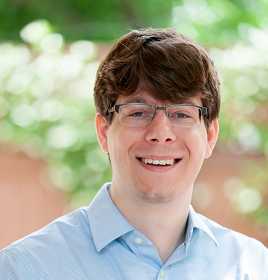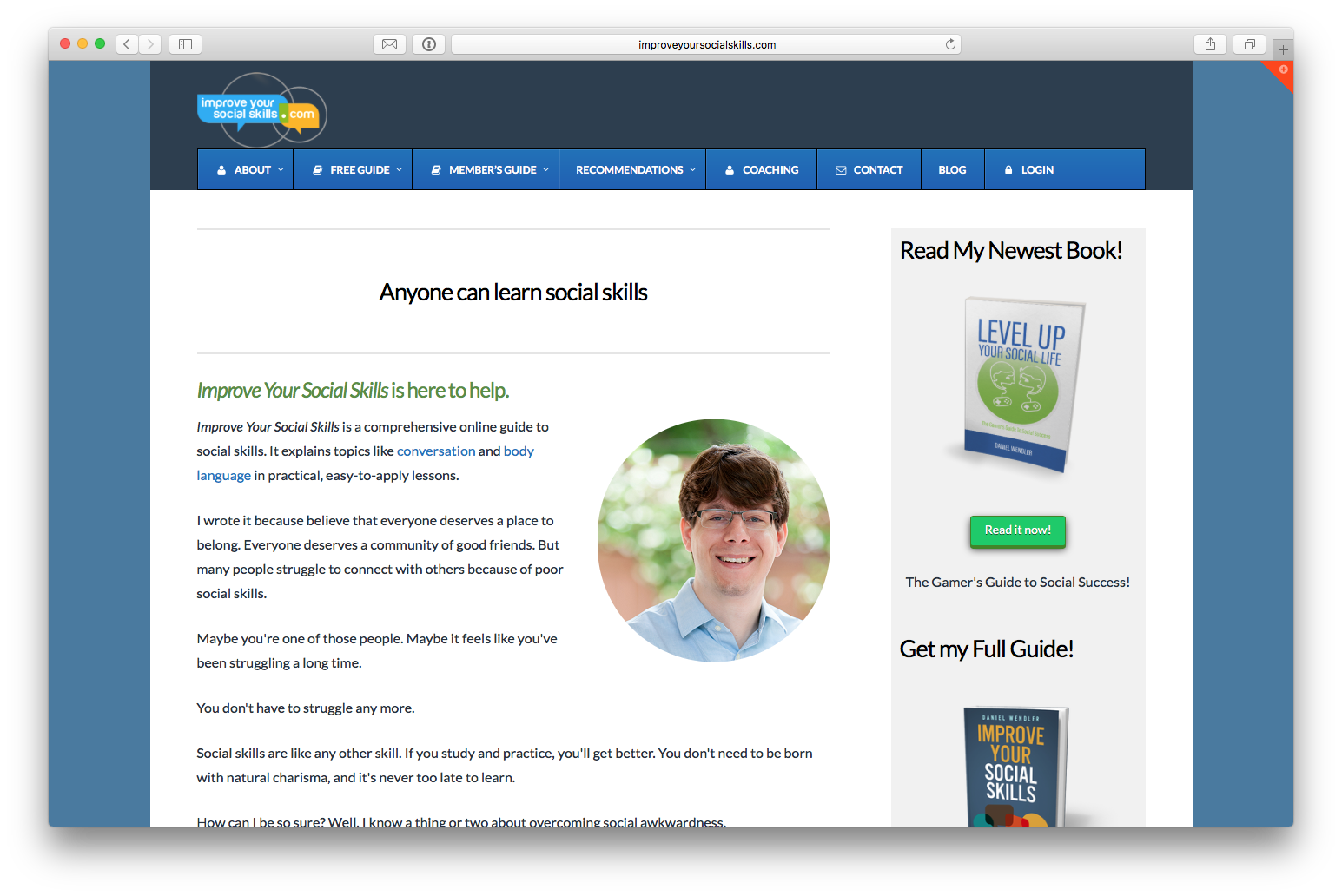Improving your public speaking skills – some advice from Daniel Wendler, social skills guide
Daniel Wendler is a doctoral student in clinical psychology, as well as the founder of ImproveYourSocialSkills.com – an online social skills guide. Here he gives some advice on how to improve your public speaking skills.
The theme of Crastina this month is “neurodiversity and communication”.
 In 2013 Daniel gave a TEDx talk at University of Arizona with the title ”My life with Asperger’s”. In this presentation, he described how he refused to be defined by his neurological condition and instead “decided to study social interaction like a foreign language”.
In 2013 Daniel gave a TEDx talk at University of Arizona with the title ”My life with Asperger’s”. In this presentation, he described how he refused to be defined by his neurological condition and instead “decided to study social interaction like a foreign language”.
Today, Daniel Wendler calls himself a social skills coach. His online material offers interesting observations which are valuable for everybody, no matter if you call yourself an aspie or a neurotypical. It can be compared to listening to a phoneticist describing the sounds of your native language. There are always new insights to be gained when a clever person is observing and analysing things that one normally takes for granted.
We got in touch with Daniel and asked him to share his reflections about some skills of public speaking.
Hi Daniel. Please describe how we can use pauses in public speaking!
When you are speaking, you will naturally have pauses in the conversation as you gather your thoughts or plan the best to phrase an idea. There is nothing wrong with this, but many people feel very uncomfortable with any kind of silence when they are speaking. So they fill their pauses with filler words like “um” “ah” “like” “you know” and other similar phrases.
These filler words make the speaker appear less sure of themselves, and distract from the content of the speech. Effective speakers learn how to be comfortable with silence, and resist the urge to fill their pauses with unnecessary words. This is true both in public speaking and in casual conversation — if you simply stop talking when your mind encounters a pause, you will appear more confident and certain than if you fill the space with filler words.
The easiest way to avoid using filler words is to condition yourself to avoid them. Practice giving a speech and have a friend watch you. Anytime you use a filler word, have the friend shout or play an annoying noise. This will quickly train your mind to avoid filler words, and you will communicate in a way that feels more confident.
Explain the 10-10-10 rule which may be used to combatting anxiety!
The 10-10-10 rule is a simple technique for using your mind to overcome your social anxiety. If your anxiety is preventing you from doing something
social, ask yourself “If I try this, what is likely to happen 10 minutes in the future? What is likely to happen 10 months in the future? What is likely to happen 10 years in the future?”
For instance, let’s say you are at a party and are considering starting a conversation with someone. The thought of starting the conversation makes you feel very anxious, so you deploy the 10-10-10 technique.
You ask yourself “If I start a conversation, what is likely to happen 10 minutes in the future?” Answer: Either we will have an enjoyable conversation, or the conversation will be awkward and I will feel embarrassed. So 10 minutes into the future, starting a conversation could result in either a good or a bad outcome.
Then you ask yourself “What is likely to happen 10 months in the future?” Answer: If the conversation goes poorly, you probably will have forgotten all about it in ten months and it won’t matter. But if the conversation turns into a friendship, then maybe ten months later you will have a new friend. So 10 months into the future, starting a conversation could result in either a neutral outcome (everyone forgets about it) or a positive outcome (you make a new friend.)
Similarly, if you ask yourself “What is likely to happen 10 years in the future”, the answer is probably that this conversation is unlikely to affect anything ten years in the future. So why worry about it?
Of course, this technique does not work in all social situations, and if you struggle with serious social anxiety you should consider seeing a
professional therapist. But for many people, the 10-10-10 technique is a helpful way to gain some perspective on situations that make you feel anxious.
Science and tech people who communicate often focus on details, rather than on their bottom line message. How should they proceed to adapt their content to the listener and the context?
First, don’t share too much all at once. When it is your turn to speak, share just two or three good details, then allow the other person to speak. By focusing on just two or three details, you will be forced to prioritize the content that is most interesting and important.
Second, pay attention to the listener’s body language. Are they looking directly at you, leaning in, and sending other signals of interest? Or are their arms crossed, their feet pointed away, and their shoulders tense? If you notice that the other person’s body language starts to become more negative, stop talking and let them speak instead!
Finally, remember to check in with your listener. Instead of launching into a technical explanation, ask them if they would like a summary or if they want all the details. Instead of telling a long story, give them the gist first and allow them to ask questions if they’d like to know more. Put the listener in control!
- Claire Price of Crastina receives outreach award from Royal Society of Biology - October 25, 2020
- Agile Science student project at Brussels Engineering School ECAM: “We can’t wait to try it again!” - August 28, 2020
- Create an infographic in the Lifeology SciArt Infographic Challenge - June 16, 2020
- Adam Ruben – The scientist that teaches undergraduate students comedy - March 27, 2020
- Sam Gregson, Bad Boy of Science: “Comedy helps to bridge the gap” - March 10, 2020
- The Coolest Science Merchandise of 2019 - December 16, 2019
- Science Media Centre (UK) offers guide on dealing with online harassment in academia - November 26, 2019
- Agile project management taught to students and researchers at Karolinska Institutet - September 20, 2019
- Stefan Jansson: Improve your credibility! (Crastina Column, September 2019) - September 6, 2019
- The People’s Poet: Silke Kramprich, tech communicator - August 31, 2019





Leave a Reply
Want to join the discussion?Feel free to contribute!